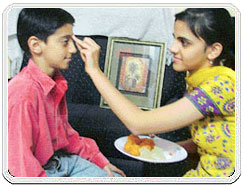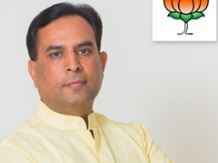BIRMIMNGHAM, Alabama — Protests continued today in the heart of Downtown Birmingham as hundreds gathered outside the Alabama Theatre where the Dalai Lama took part in an interfaith “Beyond Belief” moderated discussion.
Their chants could be heard beyond the intersection at 3rd Avenue North and 19th Street where they convened this morning in support of religious freedom for those who pray to the Buddhist deity Dorje Shugden.
“False Dalai Lama! Give religious freedom!” they chanted. Bold red and black signs danced in the hands of the more than 200 protesters along to the rhythm of beating drums. Words like “hypocrisy,” “ostracism” and “stop lying” pierced the blue sky.
The protesters — brought together by the California-based non-profit International Shugden Community (ISC) — claim that the Dalai Lama has persecuted the members of that group and caused them to be mistreated and ostracized in Tibetan exile communities around the world, including India and the United States.
Many have traveled around the world following the Dalai Lama on his various tours, said ISC spokesperson Len Foley, who himself flew in from California with his family to take part in the protest.
“We are here on behalf of a silent majority of millions of people who have felt the pain of religious persecution,” he said. “This is the most important issue in our lives.”
Members of the Shugden sect, said Foley, have been barred from many businesses, monasteries and hospitals in Tibetan communities. Signs hang outside business throughout India, he said, that forbid entrance to anyone who practices Dorje Shugden.
The group, he said, is asking the Dalai Lama–who they call the “worst dictator in this modern day”–to accept the following four points:
- To allow anyone who wishes to practice Dorje Shugden the freedom to do so.
- To stop completely the discrimination against Shugden practitioners
- To allow all Shugden monks and nuns who have been expelled to return to their monasteries and nunneries, and to receive the same material and spiritual rights as non-Shugden practitioners
- To write to Tibetan communities throughout the world telling them that they should apply practically the three above points
Foley said protests will continue this afternoon at Regions Field, where the Dalai Lama is scheduled to give a talk on the “Secular Ethics in our Time.” From here, many of the protesters, he said, plan to follow the Dalai Lama when he travels to the Northeast to the areas of Princeton, Boston and New York.
SÃO PAULO—Brazilian President Dilma Rousseff faces two pressing challenges after winning re-election by a narrow margin on Sunday: mending a divided electorate following a rancorously partisan campaign and reviving her nation’s stagnant economy.
Ms. Rousseff, of the leftist Workers’ Party, defeated Aécio Neves of the conservative Brazilian Social Democracy Party, or PSDB, by 52% to 48%, the tightest presidential race in the nation’s history. The contest, marked by bitter rhetoric and harsh accusations on both sides, left Brazilians split along economic and regional lines.
In her 27-minute victory speech at a hotel auditorium in Brasília, the capital, Ms. Rousseff offered some conciliatory notes for the nation as a whole, calling for “peace and union.”
Still, she didn’t mention either Mr. Neves or his party by name, nor did she refer to Marina Silva, the Socialist Party candidate, who finished third in Oct. 5 first-round voting and was eliminated from the race.
nstead, Ms. Rousseff repeatedly thanked her still-popular predecessor and mentor, former President Luiz Inácio Lula da Silva, who stood on stage beside her, and heaped praise on her supporters and colleagues with the Workers’ Party, known as the PT.
“Her speech may have been better than the pessimists expected, but it was below what the optimists expected,” said Carlos Melo, a political scientist and professor at Insper, a São Paulo-based education and research center.
For his part, Mr. Neves alluded to the theme of reconciliation in a brief concession speech minutes before Ms. Rousseff spoke. Addressing supporters at a hotel in Belo Horizonte, in his native state of Minas Gerais, a smiling but subdued Mr. Neves said he had phoned Ms. Rousseff to wish her government success.
“And I highlighted that the greatest of all priorities should be to unite Brazil around an honorable project that dignifies Brazilians,” Mr. Neves said.
Ms. Rousseff’s other, equally formidable task is to persuade investors that her administration can work with businesses to reset Brazil’s economy. A commodity boom that fueled robust growth on Mr. da Silva’s watch fizzled during Ms. Rousseff’s first term. Brazil fell into recession this year and is dogged by high inflation, rising debt and low productivity. Standard & Poor’s in March downgraded the nation’s sovereign debt to one level above junk.
In her speech, Ms. Rousseff vowed to combat inflation and take measures to boost industrial output.
“I will promote actions in the economy to resume our growth speed [and] ensure high levels of employment,” she said.
But Ms. Rousseff so far has shown little willingness to tackle big structural overhauls, such as changing Brazil’s tax system and cutting red tape, moves economists say are needed to put Brazil on a faster growth path. Her administration instead has leaned heavily on state-owned institutions to extend credit and dole out subsidies to consumers and businesses, measures economists say are unsustainable.
“The reforms that are needed to reinvigorate the economy require moving Brazil from a consumption-led to an investment-led growth model,” Neil Shearing, an economist at Capital Economics, wrote in a release last week. “This in turn means shifting income from ordinary workers—which form Dilma’s core support—to companies, and will thus require her to take on vested interests within her political base. All of this seems a tall order.”
The president also pledged to “fight corruption,” “strengthen regulators” and “end impunity,” an apparent reference to a series of scandals that have bedeviled the Workers’ Party. Ms. Rousseff and Mr. Neves relentlessly attacked each other’s integrity in the campaign’s concluding days, including a bruising final debate on Friday evening in which they traded barbs about a deepening corruption scandal at state-owned Petroleo Brasileiro SA, PETR4.BR -11.53% Brazil’s largest company.
A prominent weekly news magazine, Veja, reported last week that Ms. Rousseff and her predecessor, Mr. da Silva, knew of a vast bribery scheme in which Petrobras funds allegedly were diverted to secure political favors, charges Ms. Rousseff and her party have adamantly denied.
Finally, Ms. Rousseff must reckon with an opposition that, despite losing Sunday’s election, seems to have been invigorated by its strong showing in a close race.
“What is called opposition in Brazil is a very large force,” said José Serra, a former governor and the PSDB’s presidential candidate in 2002, when he lost to Mr. da Silva. “We are going to use that force in benefit of Brazil, of its unity, and to overcome the problems we’re experiencing in the economy, in education and in health.”
Delhi Dynamos fired three stunning goals and scored another one from the penalty spot to outplay Chennaiyin FC 4-1 to record their first win in the Hero Indian Super League on Saturday.
Wim Raymaekers and Mads Junker scored in the second and 21st minutes before Bruno Arias and Gustavo dos Santos found the net in the 79th and 90th minutes for the Dynamos at the Jawaharlal Nehru Stadium in New Delhi.
Brazilian World Cupper Elano Blumer pulled one back for Chennaiyin in the 69th minute with another brilliant goal through a free-kick on the night of four stunning goals.
Dynamos were searching for a win after a goalless draw in their opening match against Pune City FC and 1-1 stalemate against table leaders Atletico de Kolkata and they were the deserved winners as they had more possession and more shots at the goal.
Captain Alessandro Del Piero did nothing extraordinary but Dynamos midfield of Bruno, Hans Mulder, Steven Dias and Shylo Malsawmtulanga controlled the middle of the park to give the home side upper hand.
Chennaiyin came back a better side in the second half after off-colour captain Bojan Djordijic was replaced by Colombian John Mendoza as they had more shots at Dynamos goal but tasted their first defeat after back-to-back wins.
With today’s win, Dymanos are now on fourth spot in the table with five points while Chennaiyin remained on third with six points.
Former India international Dias found a place for the first time in the Dynamos starting line-up in place of injured Morten Skoubo and he made an impact with a perfect assist that led to the home side’s second goal.
He had another fine overlapping run at the right flank but his attempt at the goal got the outstretched hands of Chennaiyin goalkeeper four minutes into the second session.
Even as the weekend crowd was yet to settle down, central defender Wim Raymaekers scored a stunning goal in the second minute to give the home side an early lead.
Del Piero took a short corner towards Malsawmtulanga who passed the ball to the Belgian fullback Raymaekers whose booming shot from the top of the box landed in the top right corner of the Chennaiyin net.
Dynamos had another chance in the 13th minute but Junker, instead of taking a shot in front of goal off a fine curling pass from Dias, sent it for a pass only to be cleared by a Chennaiyin defender.
Junker, however, made amends for his mistake eight minutes later with the second brilliant strike of the night. Del Piero’s corner came back to him after a clearance from a Chennaiyin defender and the Italian legend passed it to Dias whose inch-perfect floater was met by a diving Junker’s head and goalkeeper Gennaro Bracigliano dived to his left in vain.
For Chennaiyin, Harmanjot Khabra’s low shot in the 12th minute beat Dynamos goalkeeper Kristof Van Hoult but went wide.
Chennaiyin brought in John Mendoza at the beginning of the second half in place of off-colour Djordijic and that gave them the much needed boost in their attack.
Mendoza had a fine left-footed low shot from inside the box but the lanky Dynamos keeper Hout was quick to dive to his left for a corner. Again in the 76th minute, Mendoza had another go at the Dynamos goal but Hout was at it again to deny him.
Before that Brazilian star Elano scored from a set piece yet again in the 69th minute for his third goal of the tournament with a fine curling effort that beat the Dynamos goalkeeper to the stunning silence of more than 15,000 strong home crowd.
Arias took the match out of Chennaiyin’s reached as he stepped up to score from the spot in the 79th minute after Shouvik Ghosh was brought down by Harmanjot Khabra inside the box.
The match ended with another brilliant goal with Dos Santos scoring just before final whistle with a solo effort just a minute after he came to the field in place of Malsawmtulanga.
The Brazilian beat a host of defenders after getting the ball midway the opposition goal before sending past the Channaiyin goal-keeper to the wild celebration of Dynamos fans at the stand.
TEHRAN, Iran (AP) — Iran hanged a woman on Saturday who was convicted of murdering a man she alleged was trying to rape her, drawing swift international condemnation for a prosecution several countries described as flawed.
Reyhaneh Jabbari was hanged at dawn for premeditated murder, the official IRNA news agency reported. It quoted a statement issued by the Tehran Prosecutor Office Saturday that rejected the claim of attempted rape and said that all evidence proved that Jabbari had plotted to kill Morteza Abdolali Sarbandi, a former intelligence agent.
The United Nations as well as Amnesty International and other human rights groups had called on Iran’s judiciary to halt the execution, which was carried out after the country’s Supreme Court upheld the verdict. The victim’s family could have saved Jabbari’s life by accepting blood money but they refused to do so.
According to her 2009 sentencing, Jabbari, 27, stabbed Sarbandi in the back in 2007 after purchasing a knife two days earlier.
“The knife had been used on the back of the deceased, indicating the murder was not self-defense,” the agency quoted the court ruling as saying.
Britain, Germany, and a group of European parliamentarians, among others, condemned the execution, as did the United States.
“There were serious concerns with the fairness of the trial and the circumstances surrounding this case, including reports of confessions made under severe duress,” State Department Spokeswoman Jen Psaki said in a statement.
“We join our voice with those who call on Iran to respect the fair trial guarantees afforded to its people under Iran’s own laws and its international obligations,” she added.
IRNA said the police investigation found that Jabbari sent a text message to a friend saying she would kill Sarbandi three days before the deadly incident.
Iranian media reports say Sarbandi’s family insisted on their legal rights under the Islamic principle of “an eye for an eye” partly because Jabbari accused Sarbandi of being a rapist in what became a highly publicized media campaign.
In a statement ahead of the hanging Amnesty said the investigation had been “deeply flawed” and that Jabbari’s claims “do not appear to have ever been properly investigated.” The group is opposed to the death penalty and has long condemned Iran’s use of capital punishment.
The number of executions in Iran has spiked this year, with over 170 people executed already in the first quarter of the year, according to the United Nations.
Amnesty says 369 people were publicly put to death in the Islamic Republic last year. The majority of executions are for drug smuggling, which Iranian officials say reflects the large quantities of opium trafficked through Iran from Afghanistan to Europe.
Ahmed Shaheed, the U.N. Special Rapporteur for human rights in Iran, said in April that imposing the death penalty goes against the current international trend to encourage a moratorium on it and later abolish it.
He had strongly urged Iranian authorities to immediately halt executions.
Some photobooks strike you with the full force of their subject matter; others wend their way into your consciousness. For me, Max Pinckers’s self-published Will They Sing Like Raindrops or Leave Me Thirsty is among the latter. I’ve been mulling it over for weeks, and have decided that Pinckers has achieved something singular in his hybrid approach, which mixes documentary photography with staged scenes reminiscent of Bollywood movies.
The subject is love and marriage, Indian-style – both the extravagant imagery of Bollywood romance and the vexed topic of arranged marriage. Pinckers, a 26-year-old Belgian artist, spent four months travelling in India, shooting – and staging – the images of Will They Sing Like Raindrops … (The project won him first prize in this year’s
On first glance, it seems like a set of almost randomly sequenced images: couples relaxing, studio portraits, still lives, landscapes, lonely hearts newspaper ads, found images of posters and romantic inscriptions, and dramatic news stories.
But central to this rich visual narrative is a series of photographs of a four-man activist organisation called the Love Commandos. Based in Delhi, they operate on a shoestring from their small, cluttered office, manning a telephone helpline and website to provide advice and support – including safe rooms and shelters across India – for runaway couples who have fallen in love across the boundaries of caste or religion. The commandos have even sent out teams to rescue young people at risk of violence.
The main function of the Love Commandos,” writes Hans Theys in his introduction to the book, “is to allow people to do this in safety and in accordance with the laws of India, and to prevent honour killings happening to the young couples.”
Though there is something romantic, even Bollywood-glamorous, about the idea of the Love Commandos, their work is dogged and dangerous. Pinckers punctuates the narrative with excerpts from their blog, often frantic or plaintive messages from people trapped by family or caste. A newspaper cutting found by Pinckers recounts how “Pooja Rani (24) and Shambau (26) … were forced to elope to escape the ‘honour’ police hounding them for intending to marry outside their caste … Believing that dying is a better option than being chased by cops and kin, they were on the verge of committing suicide when the Love Commandos rescued them and gave them a place in one of their shelters.”
The straight reporting and dramatic description that runs though the news report is revealing, not least because it could be the plot of a Bollywood romance. (There is even a happy ending – the Love Commandos organised the couple’s wedding, thereby legalising their status, despite the families’ opposition.)
Rather than approach this culturally fraught issue as reportage or documentary, Pinckers walks a tightrope between the real and the fictional. The result is a layered narrative that plays with Indian culture’s extreme and conflicting notions of romance: Bollywood escapism versus the reality of young couples escaping the confines – and sometimes violent recrimination – of family, tribe and society.
Pinckers’s poetic vision has a density that makes it wonderfully elusive, or frustratingly so. (Why the opening image of a tower of ice in a room?) The series on the Love Commandos, alongside touchingly intimate shots of couples relaxing in safety, would make for a more direct photobook, but that is not Pinckers’s style. Instead, his narrative is both obvious and tangential, detached and controlled. The deadly serious and the kitsch sit side-by-side, as do the deftly observed and the highly stylised. His colour suggests film stills or the warmth of old Kodachrome; his scenarios seem real yet filmic.
Sitting between conceptual and documentary, while upending expectations of each, Pinckers is still emerging, but his already singular style draws you in. Bemusing and captivating, Will They Sing Like Raindrops or Leave Me Thirsty has become a book I return to like a puzzle.
The sexuality of disabled people is often ignored and that’s what inspired director Shonali Bose to come up with ‘Margarita, With A Straw’, a gentle coming-of-age story about a woman afflicted with cerebral palsy.
Bose says her second directorial venture, starring Kalki Koechlin in the lead, is a culmination of her own experiences and that of her cousin Malini, who has cerebral palsy.
“The sexuality of people with disability is ignored by us. Somehow we don’t believe that they would have the same emotional and physical needs that normal people have. My film is a coming-of-age story about one such woman’s journey of finding love ,” Bose told PTI in an interview.
The ‘Amu’ helmer, who won the global filmmaking award at Sundance for her script, says the story went through many changes after that.
“I realised that I was looking at my protagonist through my sister’s eyes and that changed later. I started looking at the character through my own eyes. Many of her experiences are actually mine,” she says.
The film premiered at the Toronto International Film Festival to encouraging reviews and was picked among the 16 films to watch out for by festival director Cameron Bailey, who called it “an exceptional portrait of a woman discovering what she wants, and how to get it.”
The film is next headed to Busan and BFI London film festivals.
Bose, 49, reveals she and co-director Nilesh Maniyar must have gone through more than 40 drafts to finalise the script.
Raising money for the unusual project was another challenge that they had to overcome.
“Viacom 18 has given half of the money and they are releasing the film in February. Another big production house from India agreed to come on board for the other half but they pulled out just 10 days before the shoot. We were stranded in New York with the crew.
“I had to take out a personal loan to complete the film. I told the crew that I can’t pay you now but I promise, I will return every penny later. To my relief, they all gave their best for the movie,” says the director.
Despite the troubles, Bose is happy with the way the film has shaped up. She also credits Malini for being with her along the difficult but fulfilling journey.
Malini and I have been very close since childhood. She has supported me a lot in making this film. Every time she watches the film, she howls and she laughs. She feels very strongly about the issue,” says Bose.
The director has an interesting story about how Kalki almost did not do the film.
“Kalki’s name was suggested by Nilesh. She has this innocent and adorable smile. She is very beautiful but not too perfect. She was the first choice for Laila’s role but then the shooting of ‘Yeh Jawani’ got delayed and she needed three months’ time which I did not have,” she says.
The director says she decided to opt for another actor as she did not want to delay the film further but finally returned to Kalki.
“I must have auditioned some 100 girls but no one had the empathy and the insight that was needed to play this part. They would be unhappy when told that they would not be able to take any other project while doing this film. Whereas Kalki completely understood that she needed to devote herself to Laila. Finally, I came back to her and told her ‘you are doing it’.”
Bose, who made her film debut with ‘Amu’ that depicted the 1984 Sikh riots, feels she consciously gravitates towards complex topics.
“I have been an activist all my life. I have been a student of history and politics. I believe that cinema can change things and feel passionate about such issues,” she says
Bose feels her film is about a woman seeking her own place in society.
“Sometimes you need to forgive yourself to love and accept yourself. That’s what the film talks about. Laila is seeking that for herself and I think we all are.”
With 62.41 million tonnes output, India remains the world’s fourth largest steel producer in the first nine months of the current year, preceded by China, Japan and the US.
World Steel Association (WSA) data showed India’s steel production grew by 1.8%, the second highest among the top four steel producing nations, during the January-September period from 61.27 MT in the same period last year.
India has been the world’s fourth largest steel maker for the last four years. The order is likely to remain unchanged in current year too, an industry expert said.
During the first nine months, China produced 618 MT steel which is a little more than half of world’s total production at 1,231 MT.
China logged 2.3% growth during the period. But its steel production remained static in September, as per data revealed by WSA, at 67.5 MT when compared with the same month last year.
Japan remained the remote second with 83.1 MT production during the nine-month period clocking just 0.8% growth over 82.4 MT production in the same period last year.
The US stood at the third spot with 66.33 MT production compared to 65.3 MT output during the January-September period of the last year.
Though the growth in world’s third largest producing nation grew by 1.6% during the period, in September steel production in the US fell by 0.1% over the same month last year.
Russia and South Korea vie for the fifth slot with 53.4 MT and 53.2 MT output in the first nine months of the current year.
The balance is, however, tilted towards the Asian nation as it logged 9.4% growth, highest among major steel producing nations, in steel production during the period compared to Russia’s 3.1%.
Actor Mayank Gandhi and Goa-based bikini model Scarlett Rose have emerged as the winning couple of dating show ‘Splitsvilla 7’, beating Abhishek Malik and Khushi Bhatt in the finale.
Mayank, 30, who was known for his open display of affection for co-contestant Rashi Sharma on the show, says the win would have made him happier if he had his lady love by his side.
“It feels good to have won a big show like ‘Splitsvilla’ but the win would have been sweeter had Rashi been with me in the finals. I wanted to win with her. Nevertheless, my aim was to beat Abhishek Malik and in that respect this win is special and amazing,” Mayank told PTI in a telephonic interview.
The was left with three female contestants to choose from to go in the finals, after Abhishek eliminated Rashi and though Mayank did not share a warm relationship with Scarlett, he chose her as his partner.
When asked why he selected Scarlett, Mayank said, “Scarlett was friends with all in the house so I knew she had a huge vote bank and to compete in the finals, we needed votes. If I would have thought about bonding, I would have chosen Priyanka but my goal was to defeat Abhishek hence I went for the girl with maximum support.”
Scarlett, 22, says the win has been a miracle for her as she never expected Mayank would choose her.
“I was stunned when Mayank called my name to be his partner because we never got along. I had the option to say no but then I thought that I supported Abhishek on the show and he has come to the finals, then why should I not think about myself. It was the most important decision of the game,” Scarlett said.
The winners say the show, which is the adaptation of American reality show ‘Flavor Of Love’, has increased their popularity and helped them bag some good projects.
While Scarlett is seen on another MTV show ‘Fannah’, Mayank will be seen participating in reality show ‘Box Cricket League’.
It was time to revisit the bond between the brother and the sister on occasion of Bhau Beej on Tuesday.
On this day, sisters perform an aarti on their brothers, feed them sweets, apply a teeka on their forehead and pray to god for their well-being and health.
The brothers respond by blessing their sisters and giving them gifts.
The festival, which celebrates the love between the brother and a sister, is celebrated in most parts of the country including Maharashtra, and is called bhai dooj in the North, Hindi-speaking belt, it is called Bhav-Bij in the Marathi-speaking communities and in Nepal, people know this festival by the name of Bhai-Tika.
Said prominent astrologer Jayant Salgaonkar: “The festival has a number of legends associated with it, the most prominent being the one about Lord Yama and his sister Yami, who were the first to celebrate the festival. The scriptures say that one should not eat at his house on this day and instead have food at his sisters house. The holy books also add that a person dying on this day, goes to heaven, regardless of his sins.”
Salgaonkar added that the revolutionary Umaji Naik, who led the revolt of the Ramoshis and Berads against the British in the 1820’s was captured by the British, courtesy a treacher in his ranks, while he had come to his sister’s home on Bhau beej.
Said Ashutosh Devari, who works in an IT company at Navi Mumbai, and had gone to his native place in Goa to celebrate Diwali: “It is festivals like these which ensure that the families stay close despite the distance.” –
Bhai Tika in theDarjeeling Hills
In a striking similarity of culture Bhai Tika is celebrated among the Gorkhalis of the Darjeeling hills.
Sisters give blessings to their brothers wishing long life prosperity and peace. The brothers gift their sisters according to the income group. Females are given a lot of respect in the Gorkhali community therefore the brother touches the feet of the sister on Bhai Tika.
Men who have migrated to the cities for employment come back home to celebrate Bhai Tika.
 New Delhi, Oct. 25 (ANI): Bharatiya Janata Party (BJP) leader Shrikant Sharma on Saturday hit back at Arvind Kejriwal over his allegation that the saffron party was buying fake votes, saying the Aam Aadmi Party (AAP) chief ran away from his responsibilities and people do not trust him anymore.
New Delhi, Oct. 25 (ANI): Bharatiya Janata Party (BJP) leader Shrikant Sharma on Saturday hit back at Arvind Kejriwal over his allegation that the saffron party was buying fake votes, saying the Aam Aadmi Party (AAP) chief ran away from his responsibilities and people do not trust him anymore.
“The people of Delhi do not trust Arvind Kejriwal. He has been completely exposed. Now the government should think of the people of Delhi,” he told ANI here.
Kejriwal had earlier alleged that the BJP has directed its MLAs to buy fake votes and delete the Aam Aadmi Party’s votes in the coming Delhi Assembly polls.
“BJP source -top BJP leader has directed all Delhi BJP MLAs to get at least 5000 fake votes made in each constituency get AAP votes deleted,” Kejriwal wrote on twitter.
“Bribe rate-Rs 1500 for new fake vote, Rs 200 to get any vote deleted. This info given by someone who did this job for BJP last week,” he added.
Kejriwal said that the AAP leaders would meet the Election Commission on Monday to lodge a formal complaint in this regard.
We are meeting EC officials on Mon at 11 am and making a formal complaint,” he wrote.
Delhi has been under President’s rule since Kejriwal resigned as the Chief Minister on February 14 after being in office for 49 days.
The BJP won 31 seats in the 70-member house while the AAP emerged victorious in 28 seats in the Delhi Assembly polls held last year. (ANI)
















Recent Comments